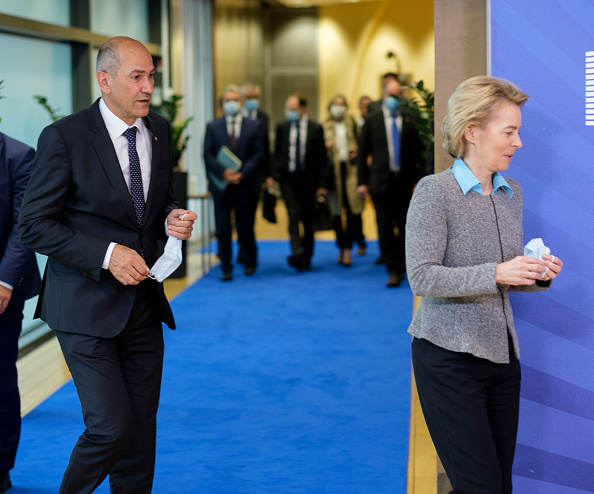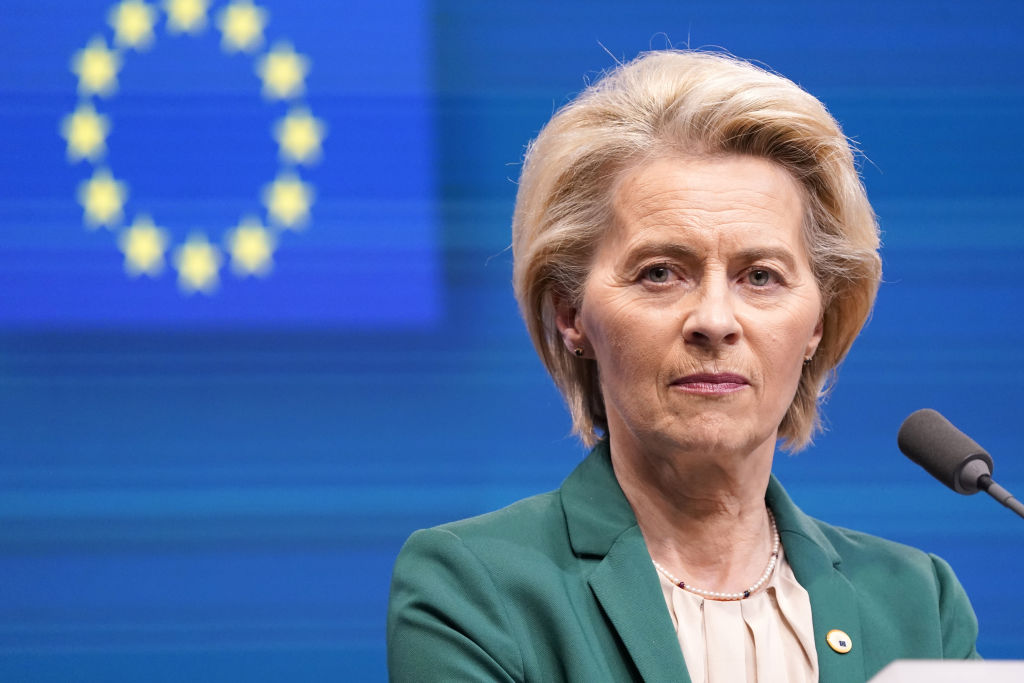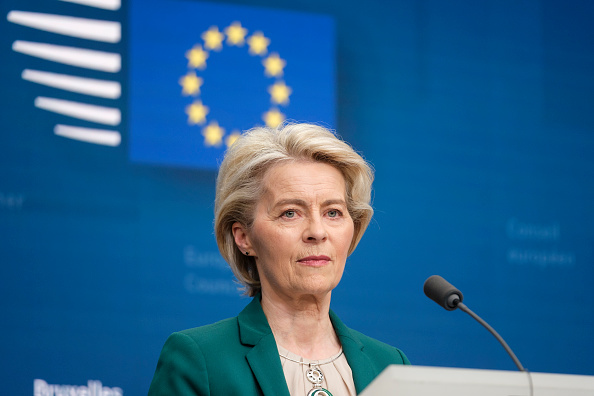Boris Tomašić, director of Slovenian broadcaster Nova24 whose offices and home were recently raided by police, has blasted the European Commission for ignoring attacks on independent media by the country’s government.
Speaking to Brussels Signal, he claimed the bloc had voiced concerns about media freedoms in Italy but had remained silent over the situation in Slovenia.
He particularly targetted the body’s Vice President and values tsar, Věra Jourová, expressing frustration that she had ignored the ordeal he and his colleagues had been put through.
“Věra Jourová, I don’t know how she is sleeping at night, with these double standards,” he said.
Jourová, a Czech politician and lawyer, had told journalists on June 4 that the EU was following “negative trends” regarding media freedom in Italy and Slovakia.
She “didn’t say anything when there were death threats to me”, Tomašić said.
“She’s now concerned about the opposition media in Italy. Why? Because [Italian Prime Minister] Giorgia Meloni is not Socialist.
“That’s the only reason I can find,” he added.
Milan Zver, an MEP with Slovenia’s opposition, wrote an open letter on May 29 to Jourová, saying the recent police raids on Nova24 represented a “severe breach of independence” of the media as well as a “political misuse of the police”.
The EC did not reply to a May 31 query from Brussels Signal, asking for a response to the MEP’s letter.
EXC: The Slovenian police raid of media outlet Nova24‘s offices was “a totally political inquiry” that “has nothing to do with the real police work”, its director Boris Tomašić told Brussels Signal. https://t.co/UXtTOYdIOl
— Brussels Signal (@brusselssignal) May 31, 2024
Since the raid, Tomašić told Brussels Signal that Slovenian police had visited his home a second time, which he said amounted to “harassment”.
On June 4, as a police patrol vehicle blocked Tomašić’s driveway, another drove up to his door, said the news director.
“When I asked what they came here for, they said they ‘made a mistake’ and left,” Tomašić said.
He questioned the sincerity of that reply. “They knew exactly what my address was,” he pointed out.
“This is harassment,” Tomašić told Brussels Signal, adding his wife was “frightened” by the second police visit.
He called the incidents an attempt to intimidate pro-opposition media in the run-up to the European Parliament elections.
Slovenian police have raided the offices of right-leaning news outlet Nova24 just days before the European Parliament elections. https://t.co/sxufsWo89r
— Brussels Signal (@brusselssignal) May 30, 2024
Nova24 is Slovenia’s “only significant media that is sympathetic to the opposition”, according to Janez Janša, leader of the Slovenian Democratic Party (SDS), the country’s largest opposition party.
The SDS leads the ruling Freedom Movement, headed by Prime Minister Robert Golob, by 10 percentage points in the latest polls in the race for Slovenia’s nine European Parliament seats.
Manfred Weber, President of the European People’s Party to which the SDS belongs, said: “We call on the European Commission to urgently investigate the case and protect media freedom and the rule of law in Slovenia.”
Following the first raids, between 2,500 and 3,000 people demonstrated on June 1 in support of Nova24, with many protesters expressing dismay at the current state of freedom of expression in the country.
“Maybe you don’t agree with Tomašić and you don’t like Nova24, but do you really want to live in a country where dissenters are intimidated by the police and courts?” Žiga Turk, a professor at the University of Ljubljana and former government minister remarked.
A Slovenian parliamentary inquiry had claimed eight former employees of State-owned telecoms company Telekom Slovenije had paid Nova24 too much under a previous contract.
Tomašić argued the inquiry was politically motivated and pointed out the contract was from a period before he took over the news channel.
Matija Stepišnik, editor of the Slovenian daily newspaper Večer, said three-time former PM Janša hoped to use his party’s expected strong performance in the European elections as a springboard to launch a comeback.
The Slovenian EP vote takes place on June 9, the same day as hotly contested referendums on euthanasia and unrestricted use of cannabis in the country, which could boost turnout, he added.





